10 Best Loora Alternatives to Boost Your Language Skills
Loora is a strong AI-driven English coach, but it’s not the only way to improve your speaking and comprehension skills.
Whether you want structured lessons, real-world simulations, or flexible bite-sized practice, there are plenty of alternatives worth considering.
1. Midoo AI

Midoo AI takes a holistic approach to English improvement. It doesn’t just assign you a level — it creates a tailored plan based on your goals, habits, and weaknesses. Sessions start with warm-up exercises that directly address recent errors, ensuring every lesson feels relevant.
The AI responds in real time, adjusting vocabulary, tone, and complexity to match your performance. It can even role-shift into realistic scenarios, from casual chats to high-stakes negotiations, replicating the unpredictability of real-world English.
Between lessons, Midoo tracks your progress trends, flags recurring mistakes, and schedules targeted reviews. This momentum-based system ensures skills stick instead of fading after a single session.
Pros:
- Personalized learning blueprint
- adaptive conversations,
- realistic role-play
- ongoing skill reinforcement
Cons:
- English-only focus,
- benefits require consistent engagement
2. TalkPal
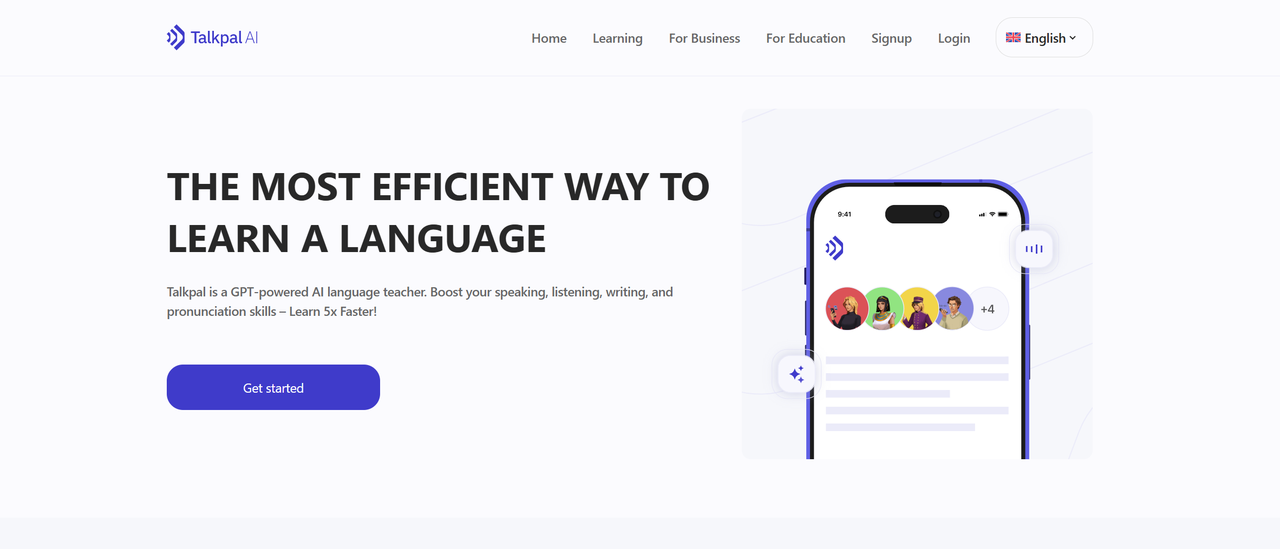
TalkPal offers fast, interactive speaking practice through gamified prompts. Sessions are short and lively, making it ideal for people who prefer quick daily interactions over long study blocks. The built-in voice recognition ensures accurate pronunciation feedback in seconds.
Its design prioritizes accessibility — light on resources and easy to run on mobile. Whether you’re on a commute or taking a quick break, you can fit in meaningful speaking practice anywhere.
However, for learners seeking a detailed, structured curriculum, TalkPal’s freeform approach might feel too casual.
Pros:
- Relaxed, confidence-building environment
- Real-time pronunciation and grammar feedback
- Wide range of topic-based dialogues
Cons:
- Less structured review system
- Limited advanced role-play options
3. Praktika
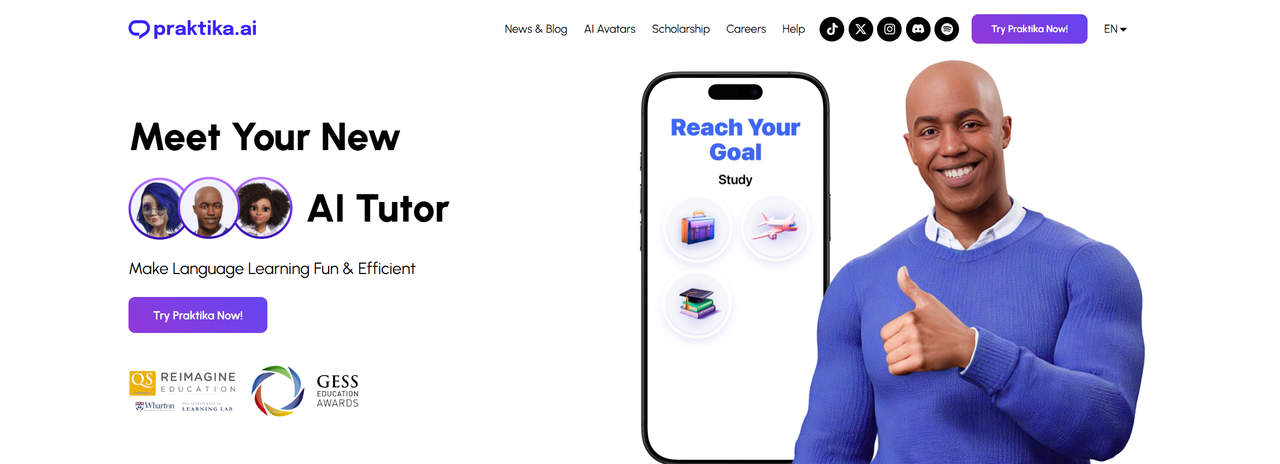
Praktika specializes in immersive, avatar-based role-play for language practice. You can interact with 3D characters in scenarios like job interviews, restaurant orders, or academic discussions. The AI adapts its tone and vocabulary to your chosen situation.
The platform is visually engaging, which makes practice feel less like studying and more like experiencing a simulation. For visual learners, this can significantly boost retention and confidence.
It’s worth noting that realistic 3D environments require stable internet and a capable device.
Pros:
- Fast, practical speaking sessions
- Adaptive correction and examples
- Multiple conversation modes
Cons:
- Limited long-term progress tracking
- Smaller topic variety for advanced learners
4. Speak
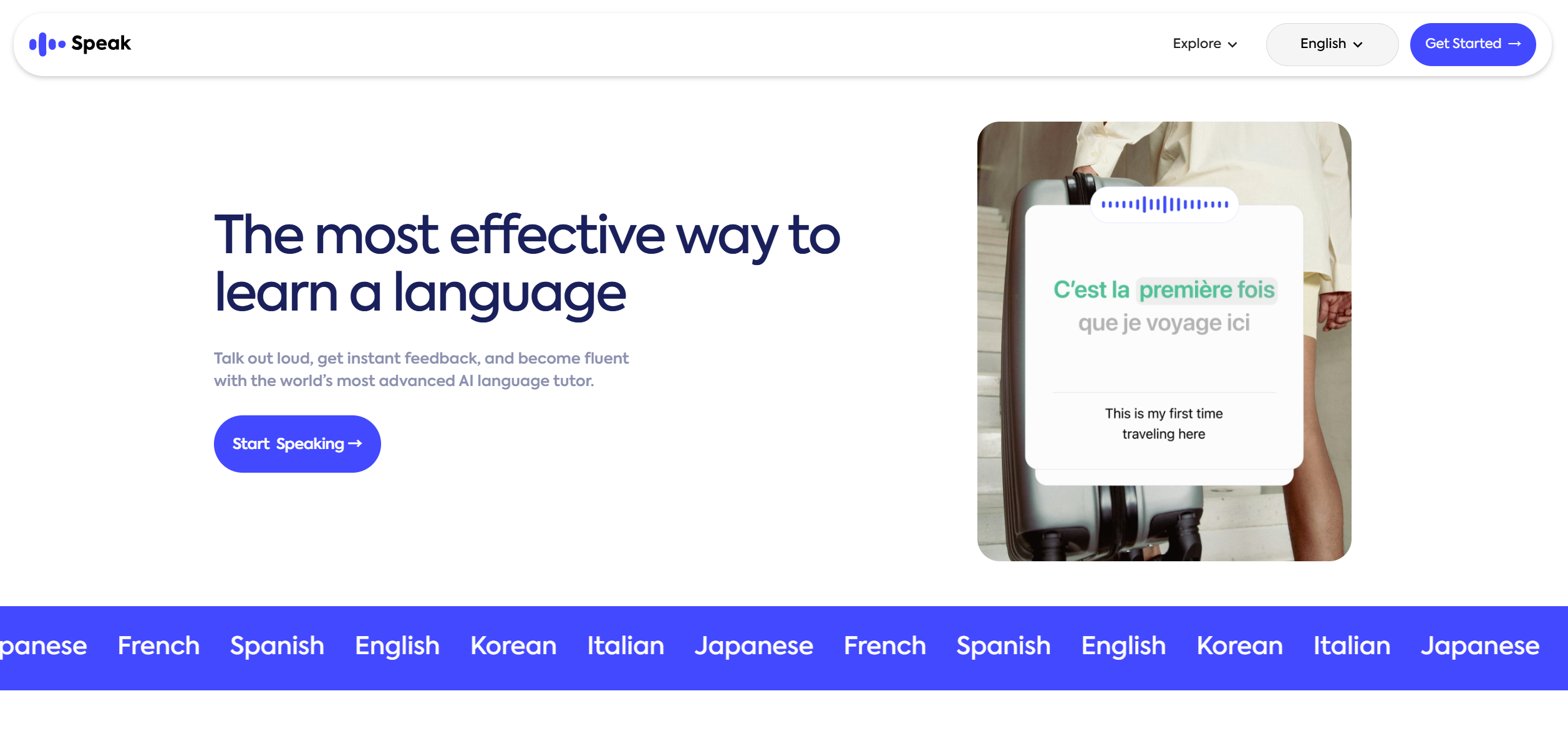
Speak focuses on helping learners master everyday conversational flow. It guides you through common expressions, idioms, and casual dialogue, with real-time correction for pronunciation and grammar.
Its intuitive interface and accessible lesson structure make it suitable for beginners and intermediate learners who want to sound natural quickly. The AI partner adjusts to your comfort level, avoiding overwhelming complexity.
That said, advanced learners might find its scope limited for professional contexts.
Pros:
- Realistic AI avatars
- Context-specific practice
- Adjustable conversation pace
Cons:
- Limited in-depth grammar teaching
- Less effective for academic writing skills
5. Lucida AI
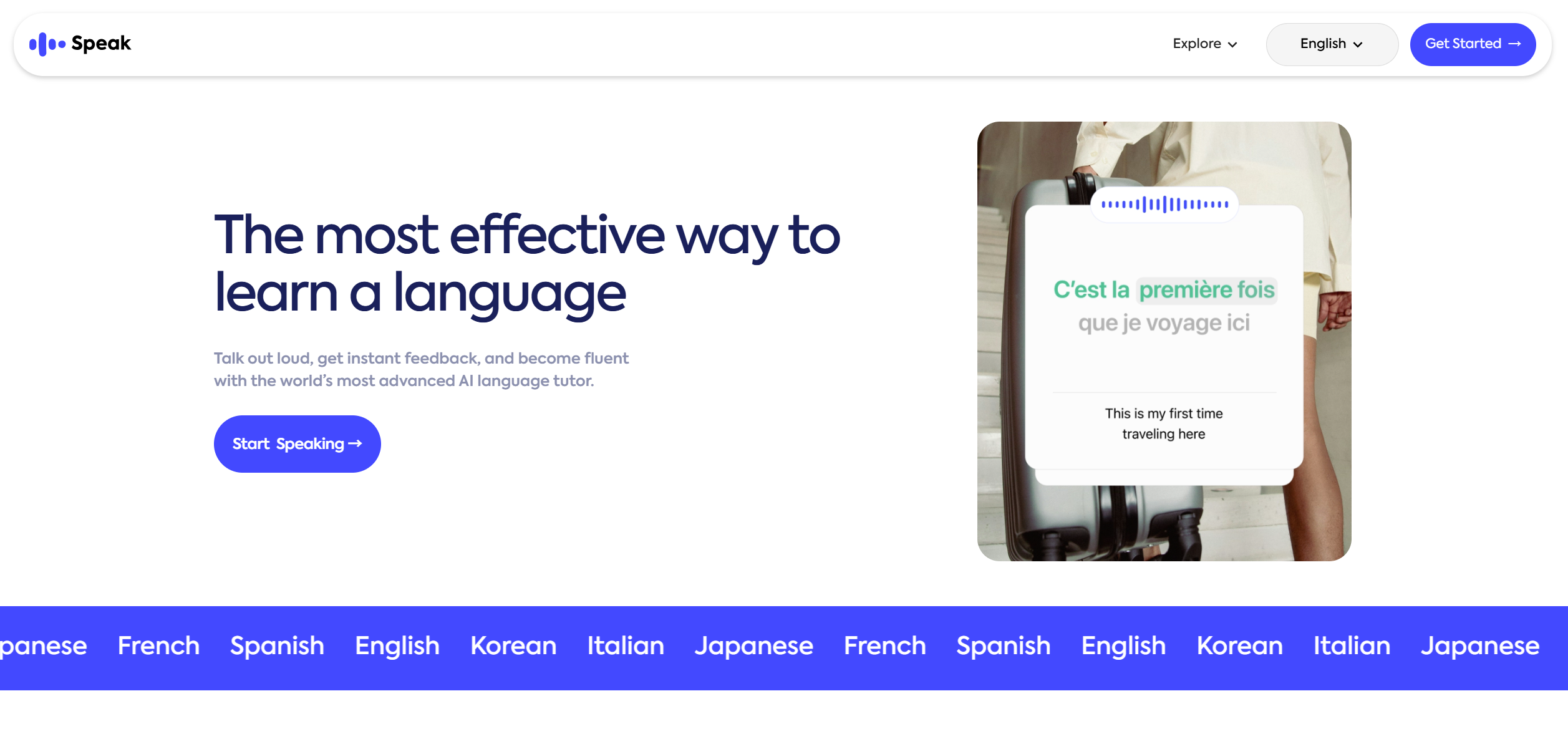
Lucida AI emphasizes emotional awareness in language learning. It detects hesitation, confidence shifts, and tone changes during conversations, then gives feedback not only on accuracy but also delivery.
This makes it especially valuable for learners preparing for public speaking, presentations, or interviews. Lucida’s feedback helps improve both clarity and confidence, turning language practice into performance coaching.
Its more advanced emotional analysis tools are locked behind premium plans.
Pros:
- Business-focused English training
- Tone and formality feedback
- Real-world corporate role-play
Cons:
- Less suited for casual learners
- Smaller content library for non-business topics
6. Learna AI
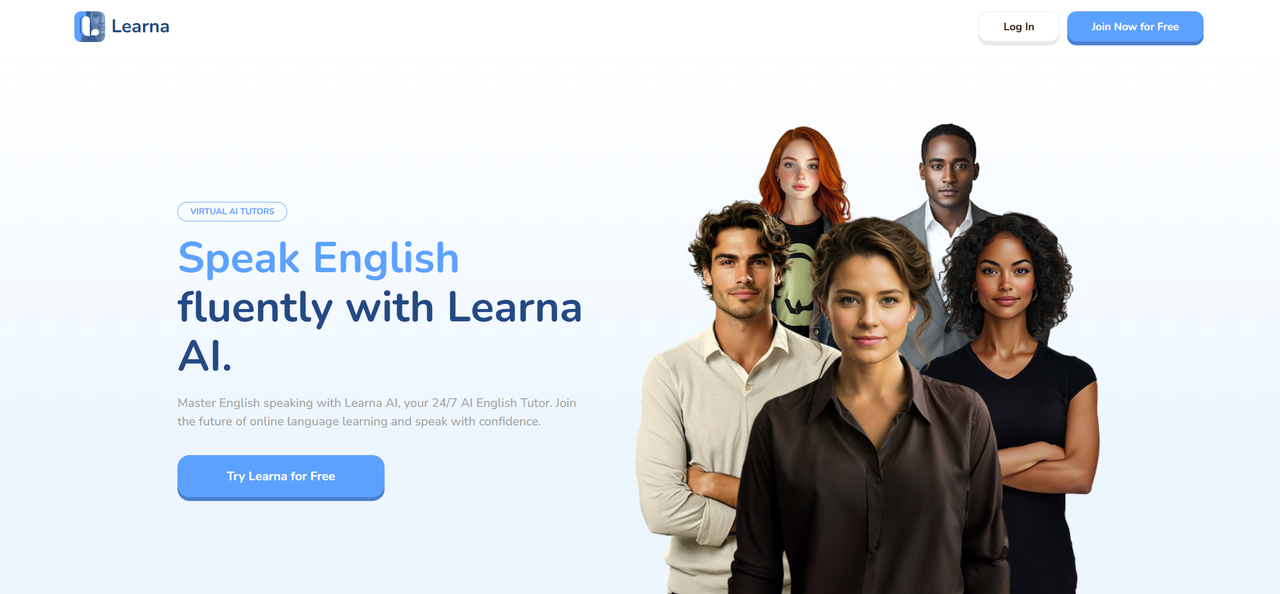
Learna AI structures its lessons around micro-learning, delivering compact, daily exercises that steadily build skills. It’s perfect for learners who thrive on routine and want visible progress without long study sessions.
The app also includes a spaced repetition system to reinforce vocabulary and grammar points over time. This keeps important knowledge fresh without cramming.
However, it lacks the immersive role-play features some competitors offer.
Pros:
- Integrated grammar coaching
- Spaced repetition vocabulary system
- Error-based personalized exercises
Cons:
- Less fast-paced conversation practice
- Interface can feel text-heavy
7. Langotalk
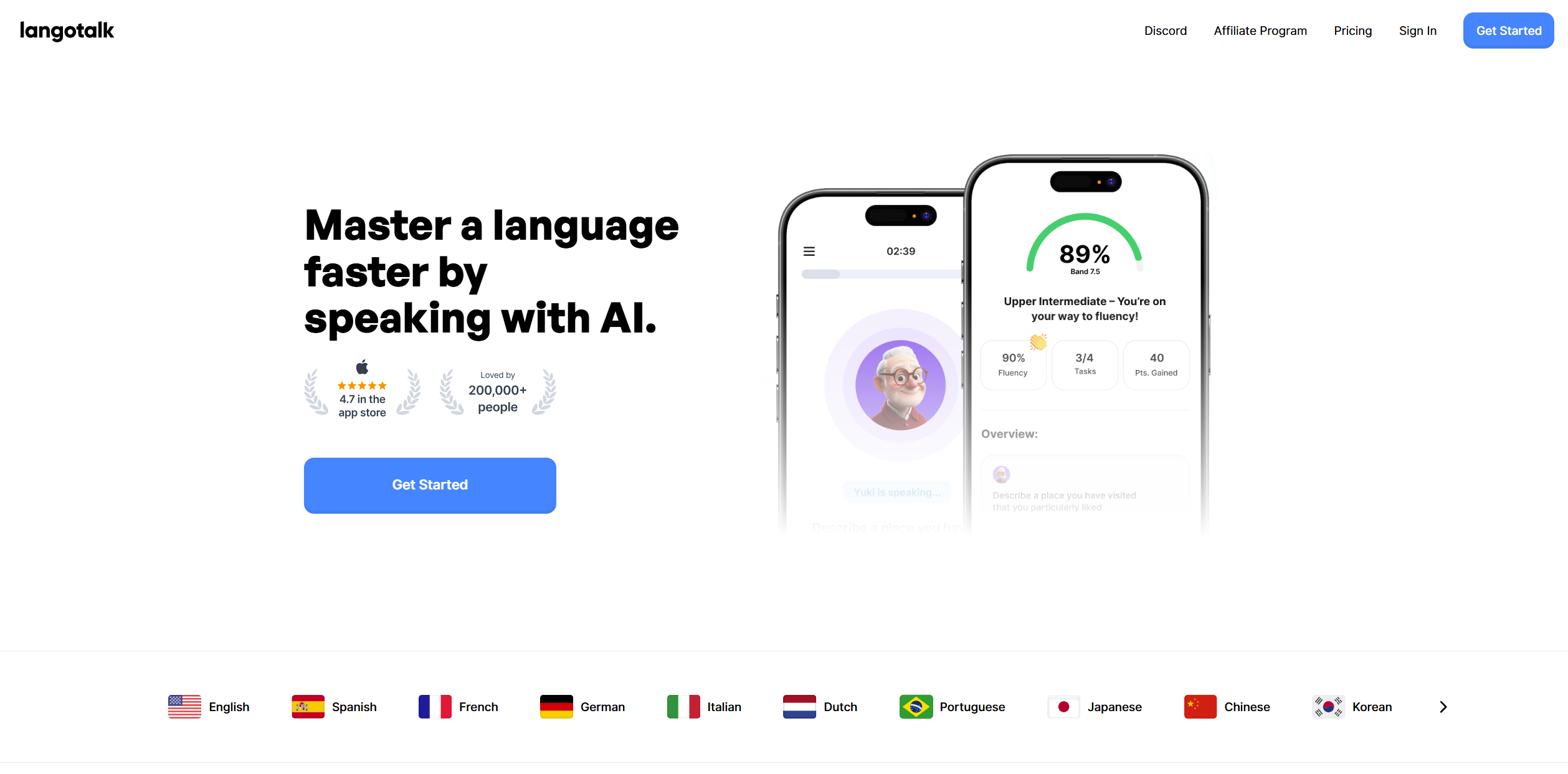
Langotalk connects learners directly with AI partners in open-ended chats. Conversations can range from casual to topic-focused, giving you freedom to explore language in context.
Its simplicity is a plus — no heavy interface, just a chat box and smart AI guidance. This makes it approachable for learners who get overwhelmed by overly structured platforms.
Still, those who need formal grammar explanations may find it lacking.
Pros:
- Creative role-play scenarios
- Confidence-building conversations
- Flexible topic choice
Cons:
- Limited structured feedback
- Less focused on grammar accuracy
8.Heylama
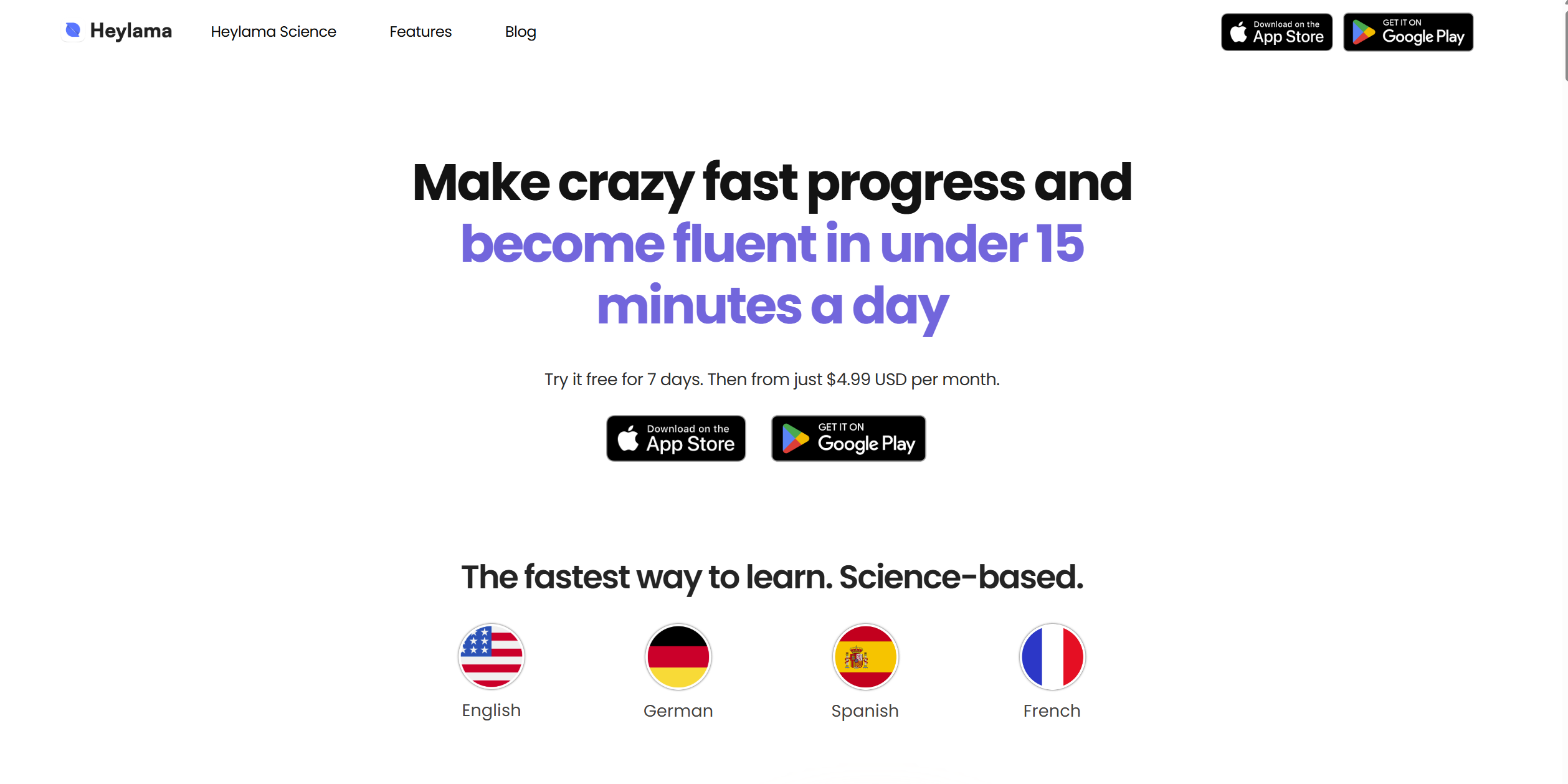
Heylama blends structured lesson plans with AI-driven conversation drills. It guides learners through vocabulary, grammar, and speaking in a balanced sequence, ensuring you don’t miss any key areas.
The platform’s clear progression path makes it great for those who like to track improvement in stages. Conversation drills ensure theory is applied immediately.
Free access is somewhat limited compared to the full curriculum in paid plans.
Pros:
- Immersive multi-language practice
- Adjustable speaking speed and accent
- Custom learning paths
Cons:
- Feedback less detailed for pronunciation
- Limited visual learning aids
9. Twee
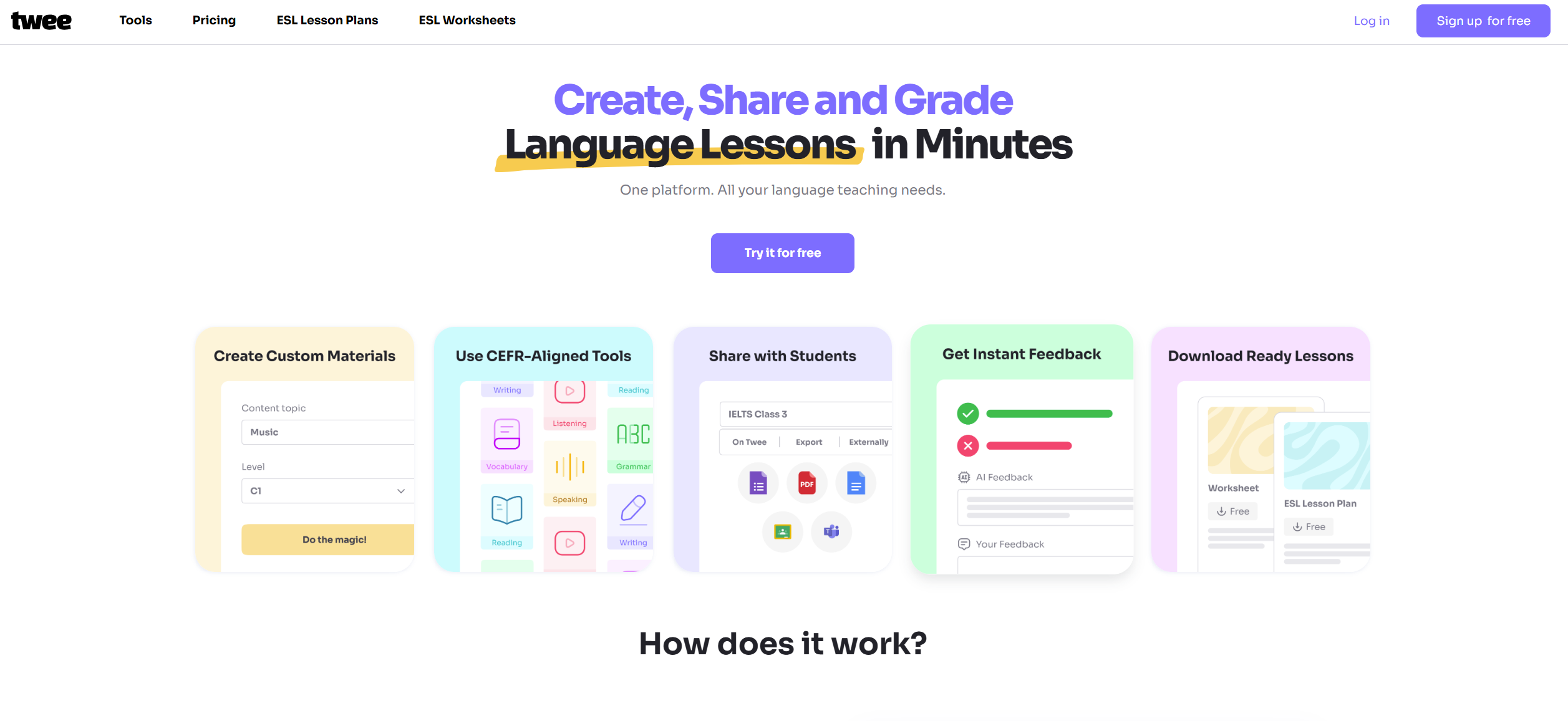
Twee focuses on creative prompts to keep learning fresh. Lessons often involve storytelling, problem-solving, or scenario-based role-play, which encourages you to use language spontaneously.
This creativity-first approach is helpful for learners who want to think on their feet and expand expressive skills beyond standard exercises.
Some users may prefer more grammar-focused material alongside the creativity.
Pros:
- Realistic conversation flow
- Option for guided or free-form chats
- Tracks recurring mistakes
Cons:
- Can be challenging for beginners
- Less emphasis on formal grammar rules
10. Gliglish
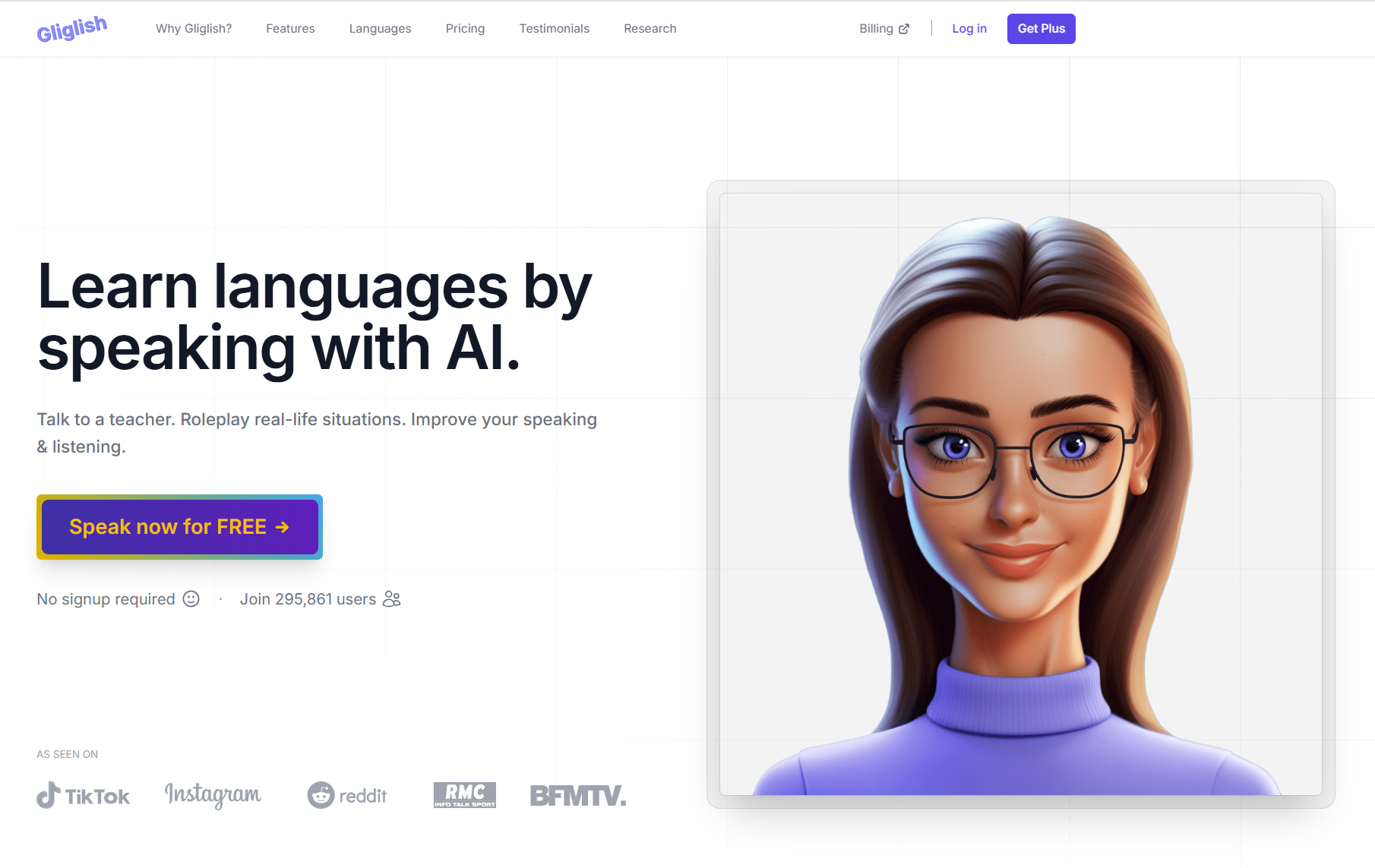
Gliglish aims for speech speed and clarity. It challenges learners with timed speaking tasks, listening drills, and quick-response dialogues to simulate real-world conversation pressure.
This makes it especially useful for professionals or travelers who need to respond quickly in English. The training builds both listening comprehension and confident delivery.
The intensity might be overwhelming for absolute beginners.
Pros:
- Fun, bite-sized challenges
- Instant, friendly feedback
- Keeps learners consistent
Cons:
- Limited deep-dive sessions
- Smaller lesson variety
Conclusion
These ten Loora alternatives bring different strengths — from immersive simulations to creative prompts and emotional coaching. Your choice should match your goals and learning style.
For the most adaptive, personalized, and momentum-driven approach, Midoo AI remains the standout choice for 2025.